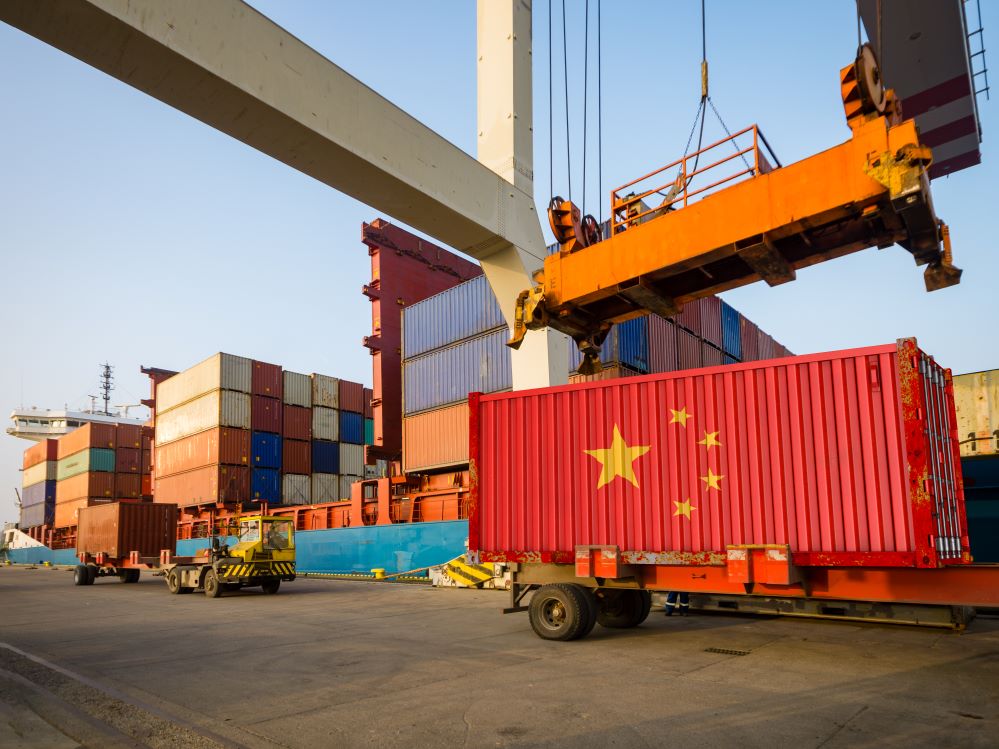
China’s latest GDP figures suggest a strong start to 2024 and overcapacity fears continue to shape its relationship with the West in the latest trade news from the country.
German dependency
German chancellor Olaf Scholz arrived in Beijing on Sunday (14 April) to pay Chinese premier Xi Jinping a visit, during which Xi has so far sought to emphasise the importance of the countries’ trading relationship.
“[We] should be vigilant against rising protectionism, look at the issue of production capacity objectively and dialectically from a market-oriented and global perspective.
“We must view and develop bilateral relations in an all-round way from a long-term and strategic perspective.”
The visit comes as tensions mount between the EU, US and China over China’s industrial capacity, with fears that the Asian nation could flood global markets with goods, particularly green technology integral to achieving net zero targets.
Xi challenged overcapacity fears during Scholz’s visit, instead touting the economic benefits of Chinese exports and warning against protectionism. He claimed Chinese exports have “enriched global supply and alleviated inflationary pressure”.
Voices from German industry have been more critical, however. Siemens chief financial officer Ralf Thomas warned that the technology firm “cannot afford to be in China”, amid increasing local competition and changing sentiment among investors, who feel that dependency on China is a liability.
This follows a 2022 de-risking strategy implemented by Germany to reduce dependency on China for ‘critical imports’.
A government official gave a more balanced assessment, saying that “we have to tackle” critical dependencies, but that it would be a “gross misunderstanding” to claim it was aiming to achieve a wholesale reduction in Chinese trade.
Trade remedy action
The UK’s Trade Remedy Authority (TRA) began reviewing measures against Chinese organic-coated steel yesterday (15 April) in another expression of concern over the country’s industrial overcapacity.
The measures – anti-dumping measures and countervailing duties – are a holdover from EU membership. The review will determine whether they’re still fit for purpose.
Anti-dumping duty ranged between 5.9% and 26.1% with a residual rate of 13.6%, while countervailing duty ranges from 13.7% and 29.7% with a residual rate of 44.7%.
Businesses that could be affected by changes should register their interest here before 30 April.
Copper cop-out
Following news that both the UK and US will no longer be trading Russian aluminium, copper and nickel on their metal exchanges, Reuters reports that both Russia and China have been disguising new copper wire and scrap in order to avoid taxes and sanctions.
Given the reduced value of levies on scrap metal, both exporters and importers can benefit from the difference in duties. Many Chinese firms have been setting up teams to handle new Russian suppliers, despite fears that they may lose business from US or UK customers if it’s discovered that they’re working with Russian companies.
Reuters suggests that Chinese companies have shredded new copper wire imported from Russia, which is typically neatly coiled, to mimic the more inconsistent appearance of scrap. Discrepancies between the high volume of scrap imports reported by China and the low volume of Russian scrap exports were used in their investigation.
Growth spurt
Amid scepticism that China would meet its 5% growth targets, data from the National Bureau of Statistics showed it began the year with a strong Q1. Despite ongoing struggles in its property market and depleted foreign direct investment, China posted growth of 5.3% in the year’s first quarter.
Unsurprisingly, this growth was largely attributed to increased manufacturing output, with industrial production up 6.1% on the previous year.
However, internal economic experts have been hesitant to read too much into the numbers. Macquarie’s chief economist, Larry Hu, said:
“It’s better than expected, [but] at the same time overall the retail sales and the property numbers look relatively weak.”
Some economists believe that further stimulus will be required to sustain the momentum, but is unlikely to be forthcoming.

